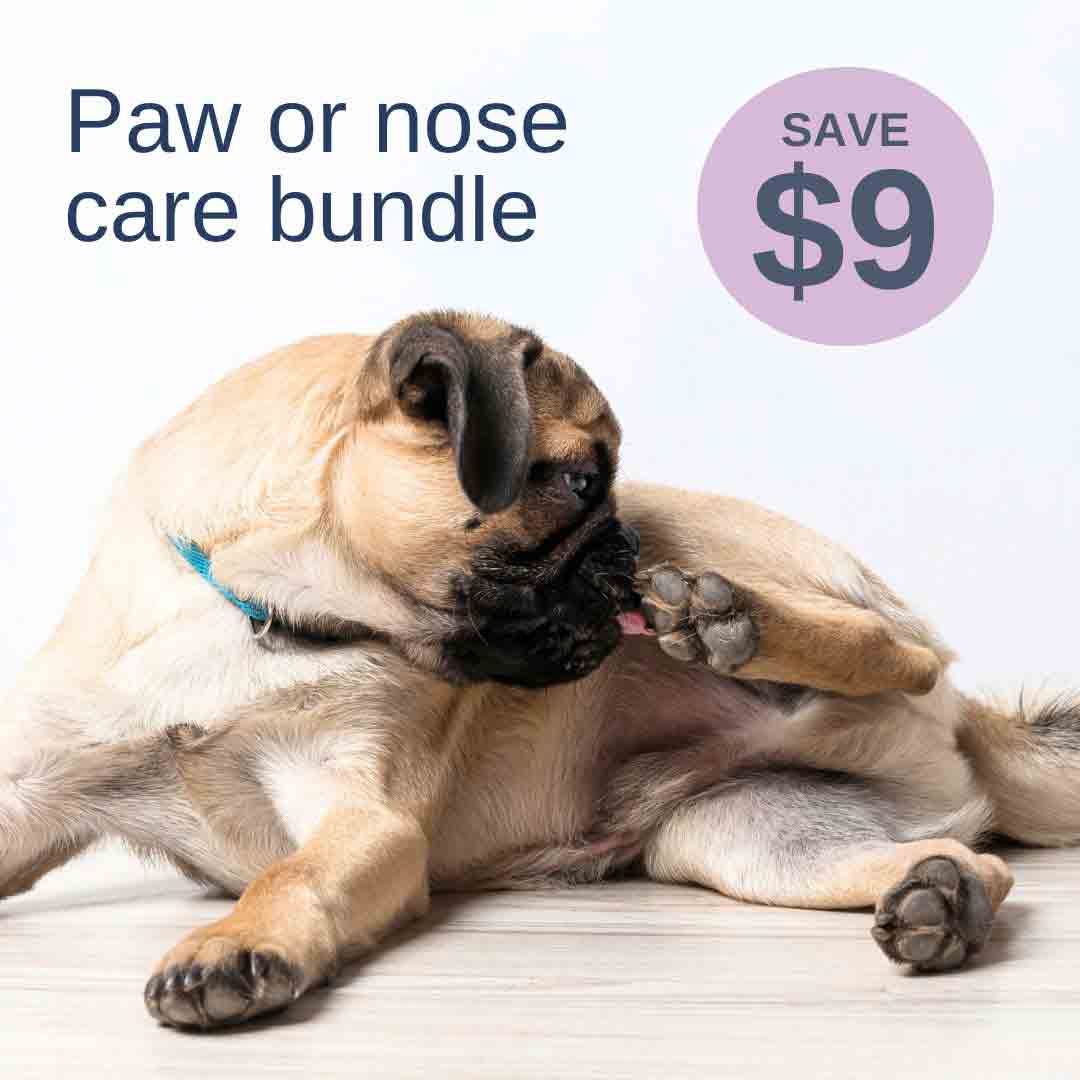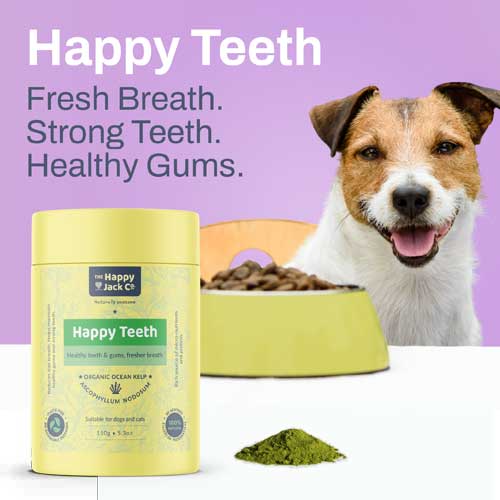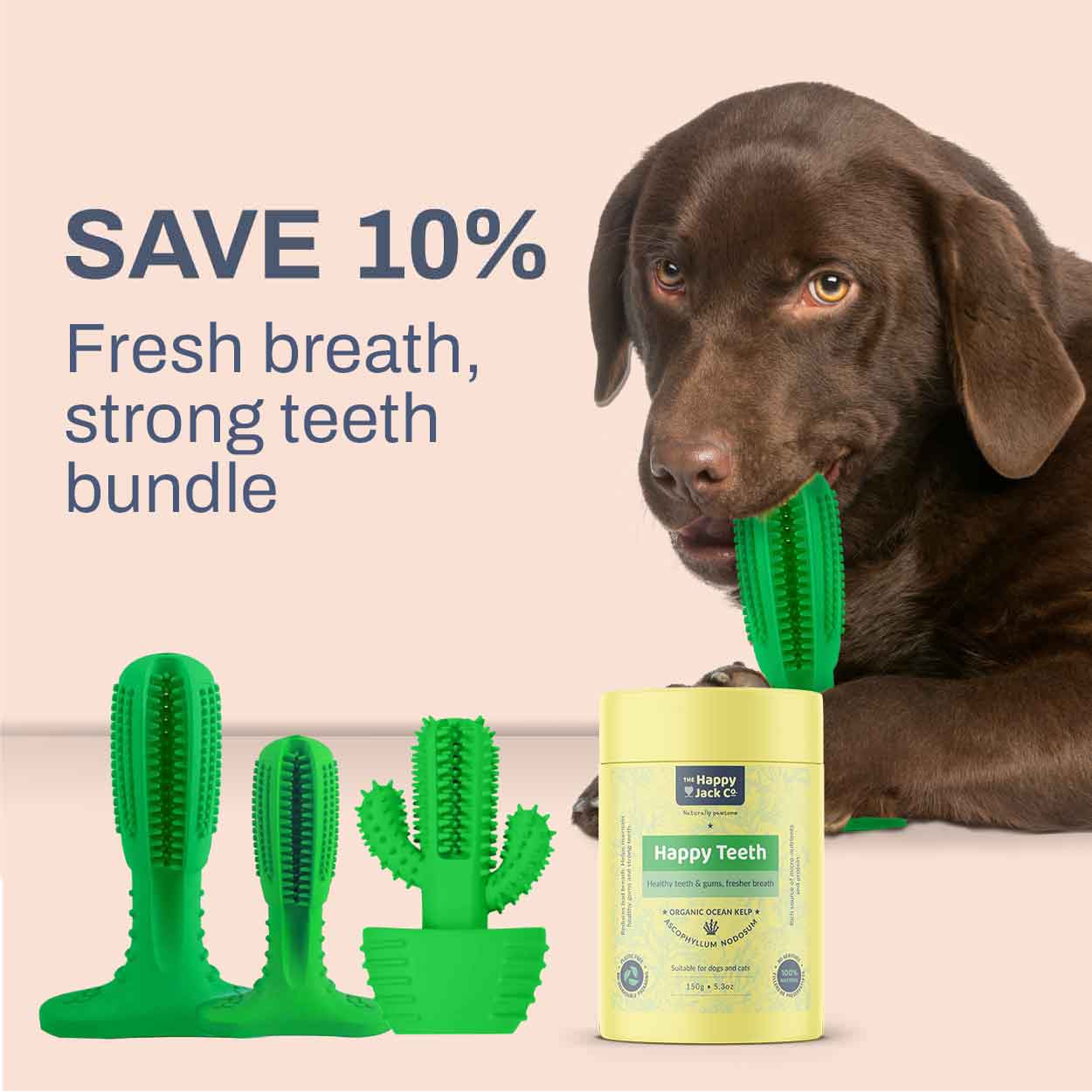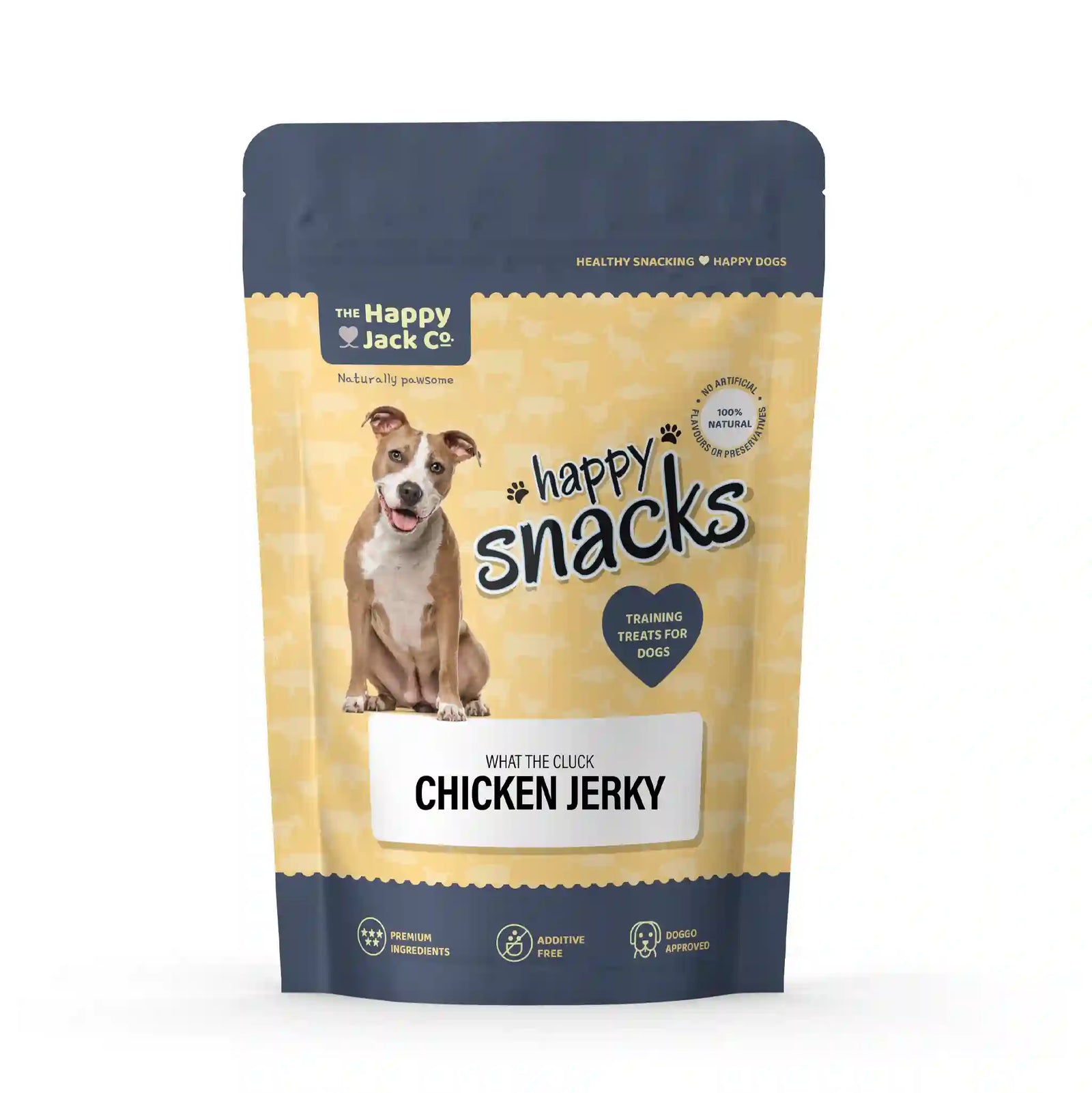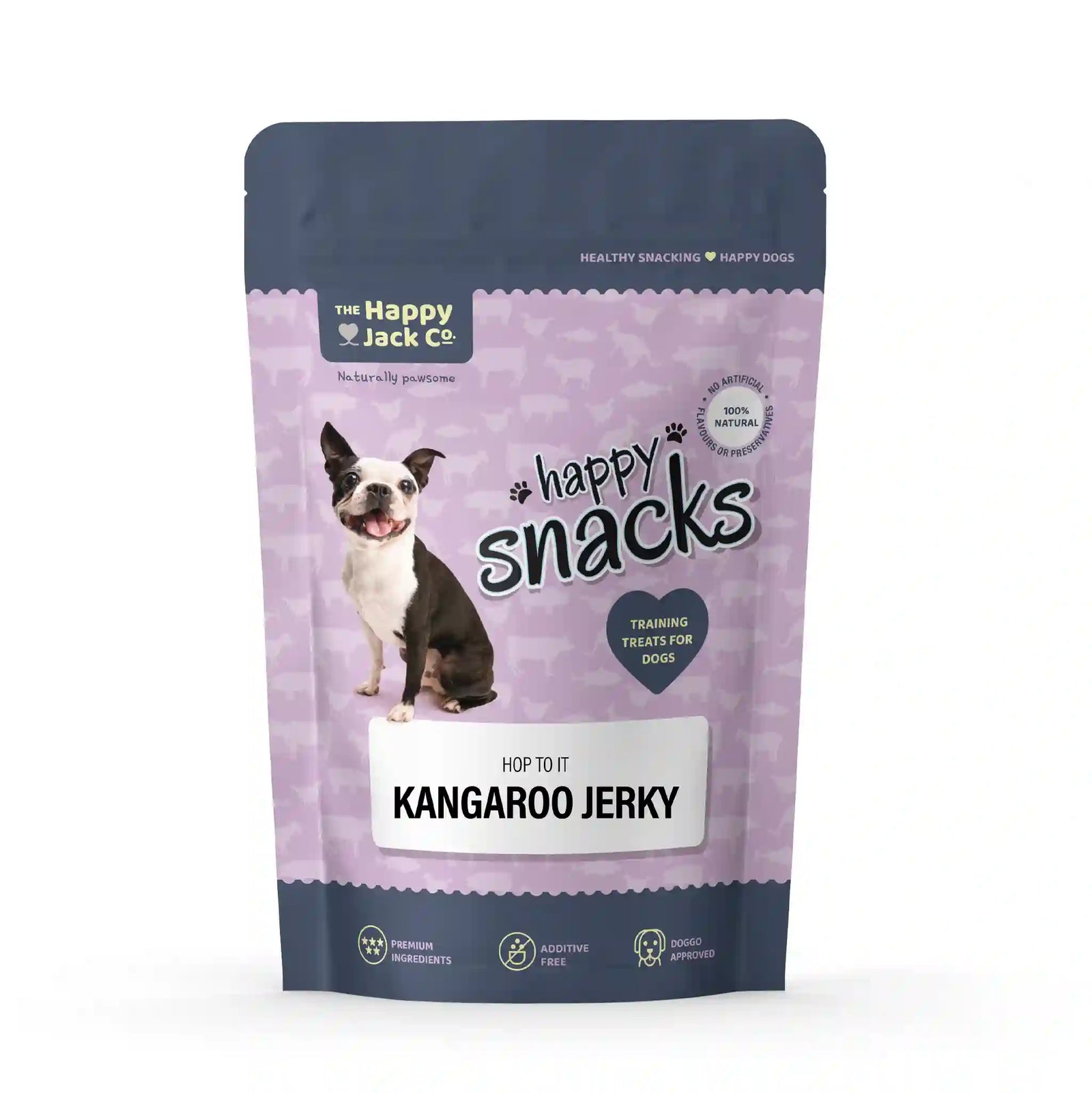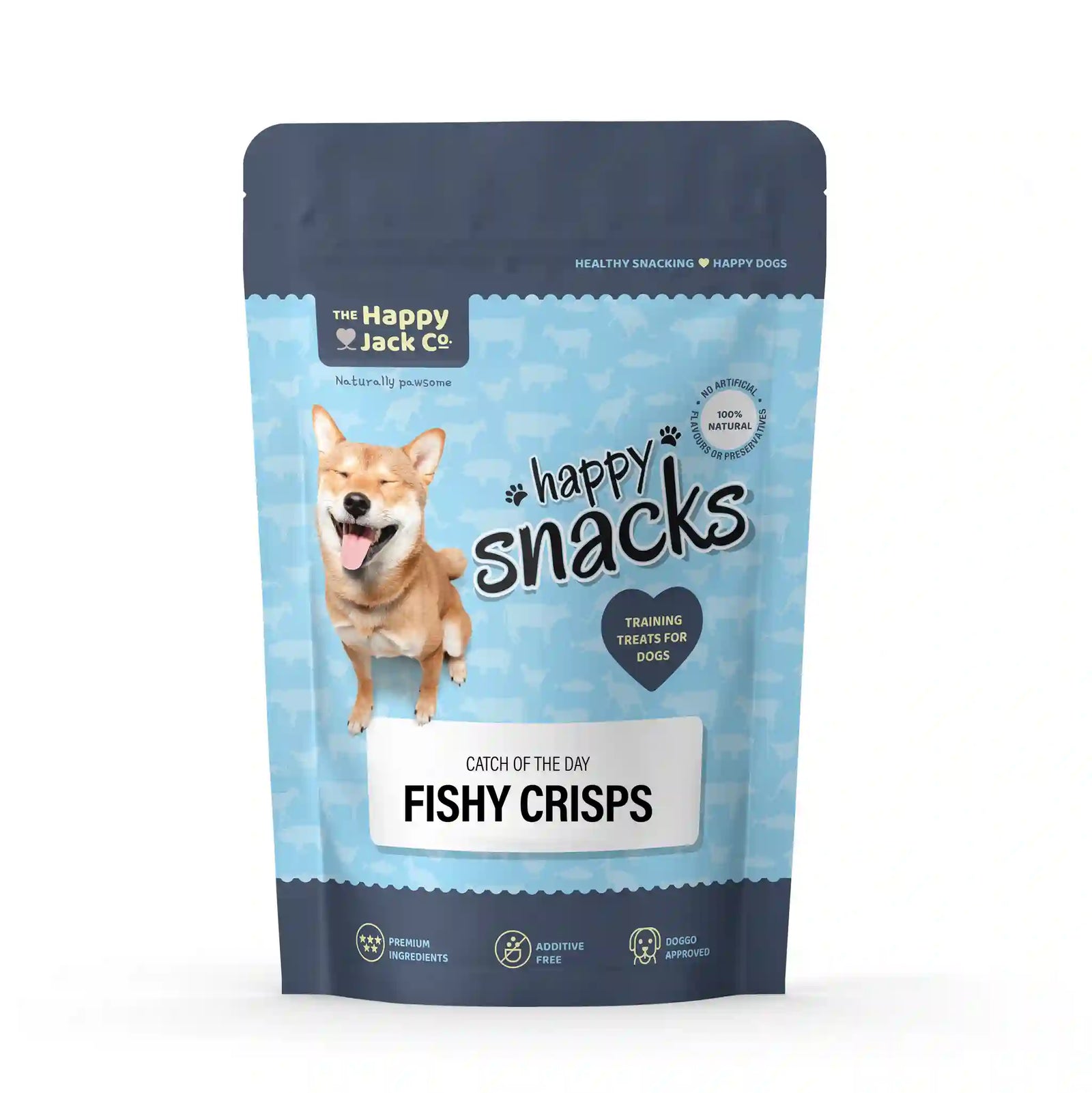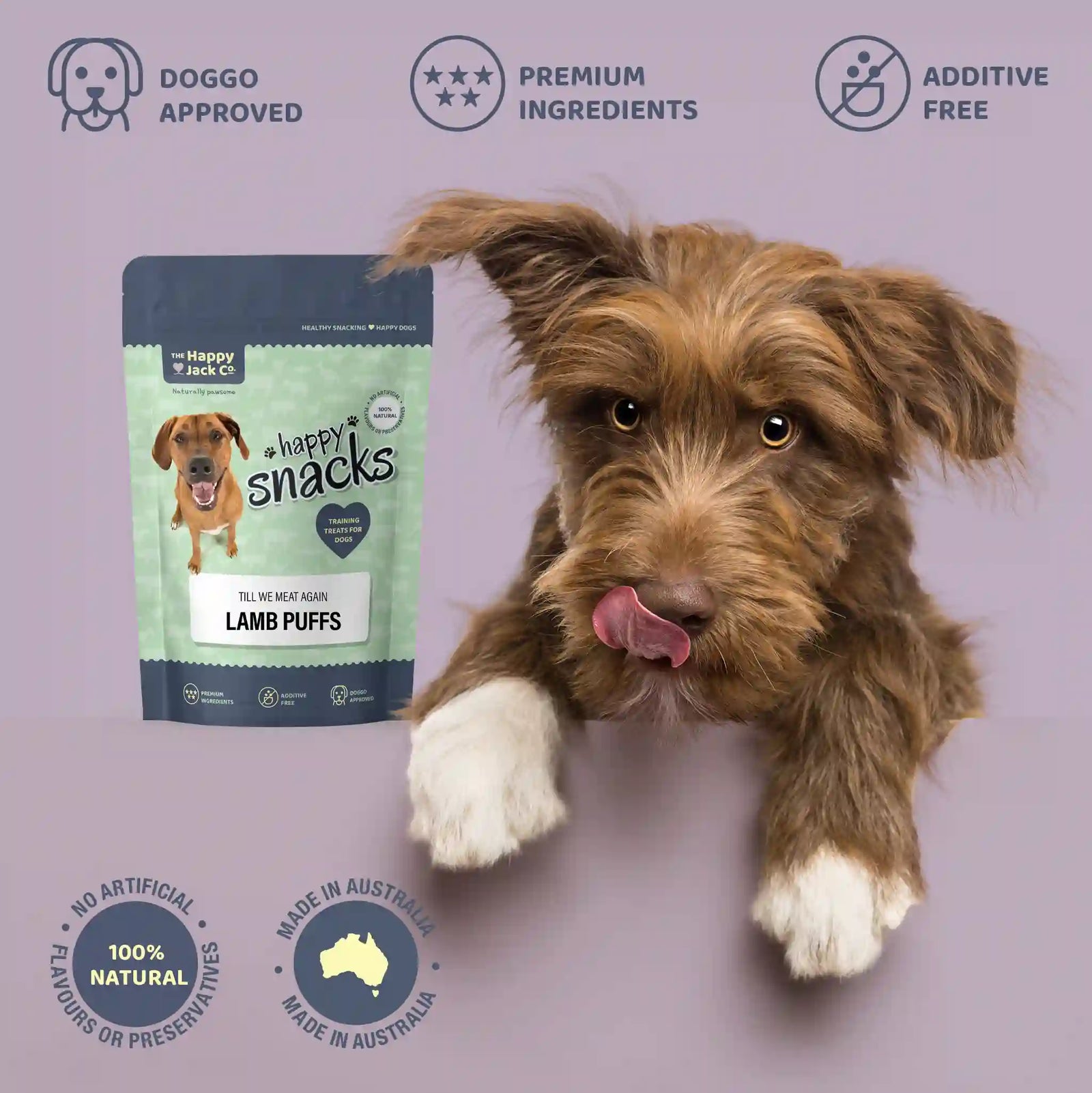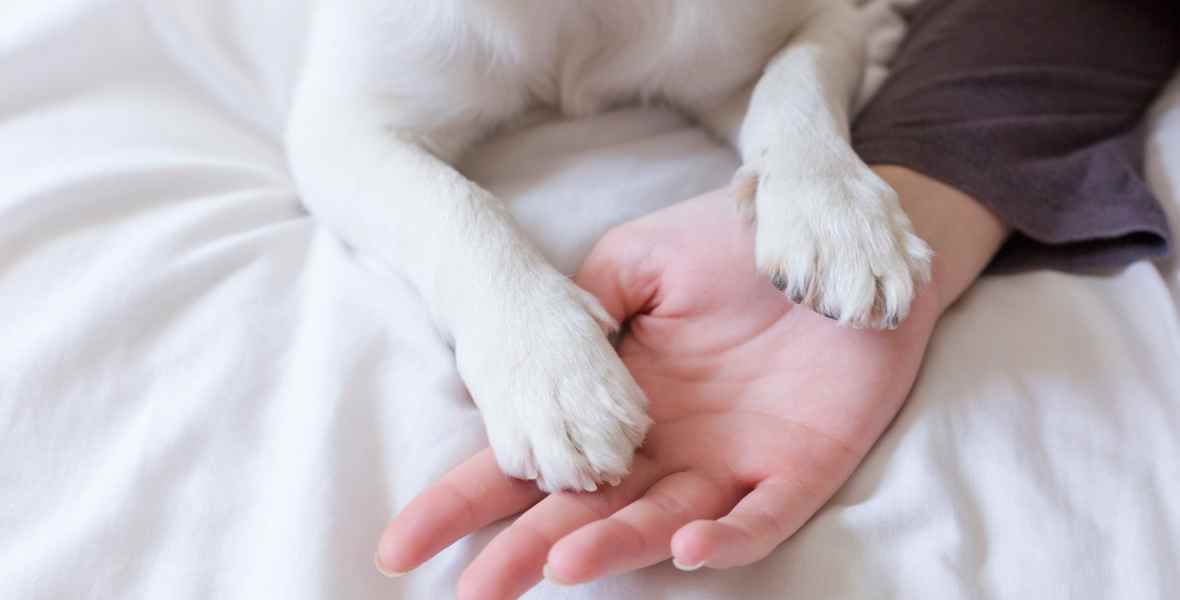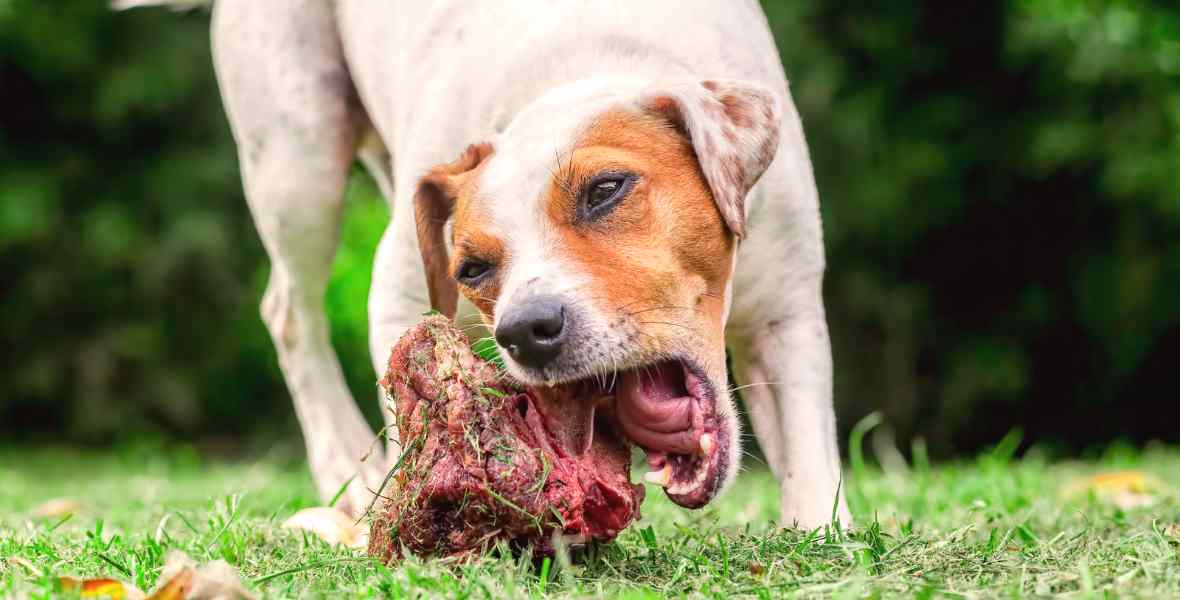
So you’re wondering how to clean your dog’s teeth naturally. Raw meaty bones have been a staple of dogs’ diets for centuries and they are still recommended by vets as one of the best ways to keep their teeth clean and healthy. Bones offer a natural and delicious way to clean your dog’s teeth. They provide nutrients and calcium which are essential for strong teeth. They're an effective and natural way to avoid bad oral health which can lead to gum disease.
In this blog, we explore how you can naturally clean your dog’s teeth by feeding raw meaty bones.
What is gum disease in dogs and what are the signs?
Choosing the best bones to clean your dog’s teeth
Why you should supervise your bog while they eat their bones
How often should you feed your dog raw bones
How to easily enhance the cleaning power of bones on your dog’s teeth
“Four out of every five dogs are said to have some degree of dental disease.”
~ Australian Veterinary Association
What is gum disease in dogs and what are the signs?
Gum disease is an infection of the gums and surrounding tissues that support the teeth. It is a common condition in dogs and can occur as a result of plaque build-up on the teeth. Plaque is a film of bacteria that forms on the teeth and can harden into tartar if not removed through brushing. When plaque and tartar build-up, they cause inflammation in the gums which can lead to gum disease.
If your dog has bad breath it can be a symptom of gum disease. Inflamed gums, painful or loose teeth (which may cause them to paw at their mouth or refuse to eat), can also be signs. If left untreated, gum disease can lead to tooth loss and other serious health problems. It is important to seek veterinary care if you suspect your dog may have gum disease.

Raw meaty bones are a great way to clean your dog's teeth naturally.
Choosing the best bones to clean your dog’s teeth
First up, never feed your dog cooked bones as they can cause stomach upsets and they are more likely to splinter and perforate the stomach or intestines. It’s also important to use quality fresh or thawed bones.
The best type of bone for your dog will depend on the size of your dog and its chewing habits. To avoid choking or damaging your dog's teeth, use bones that suit their size and chewing ability. For example, smaller dogs are best suited to chicken or turkey bones. Larger dogs can generally handle large animal bones.
Make sure the bones are meaty, the action of chewing and sinking their teeth into the meat acts as a natural toothbrush. Take the bone away once the meat has been chewed off the bone as chewing on large, weight-bearing meatless bones can lead to a tooth fracture. Small bones like chicken necks are fine to consume whole (under supervision).
Following is a list of raw meaty bones that are generally good for dogs of different sizes:
Small dogs (under 11kg):
- Chicken necks
- Small turkey necks
- Rabbit bones
- Quail bones
- Pork rib bones
Medium dogs (11-22kg):
- Chicken wings
- Turkey wings
- Pork neck bones
- Beef rib bones
- Lamb neck bones
Large dogs (22-45kg and over):
- All of the bones above and…
- Pork leg bones
- Beef knuckle bones
- Lamb rib bones
- Beef brisket bones
- Kangaroo tail

Chicken bones can be consumed whole and the calcium helps to strengthen your dogs teeth.
Supervise your dog while they eat
Note that while the bones listed above are generally safe – each dog is unique and may have different chewing habits and preferences. Provide your dog with bones that are appropriate for their size and always supervise. Supervision will allow you to intervene if they choke or if the bone becomes stuck. It will also prevent them from swallowing bones that are too big or hard for them to handle.
How often should you feed your dog raw bones?
How often you feed your dog raw meaty bones will depend on factors such as your dog's size, age and chewing habits. As a general rule, most dogs can safely consume raw meaty bones once or twice a week. Bones should also be fed in moderation as part of a balanced diet, and not as the sole source of nutrition for your dog.
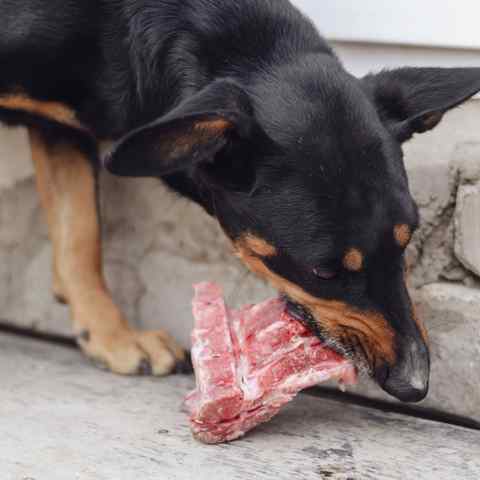
Chewing raws bones are good for cleaning your dogs teeth.
Offer your dog a variety of bones
Different types of bones offer different benefits. Chicken bones that can be eaten whole will provide calcium to strengthen your dog's teeth. Softer bones are good for brushing away plaque build-up. By offering a variety of bones your dog is getting a balanced diet while keeping their teeth clean.
Bone quality and hygiene
Always feed good quality fresh or thawed bones from reputable sources. Raw bones can carry bacteria, so it's important to keep them as clean as possible. Always wash your hands before and after handling bones. You can also store bones in the freezer to help kill any bacteria that may be present. Take the bone away from your dog once it has finished chewing on it.
Know when to stop
It's important to know when to stop feeding bones to your dog. If your dog is showing signs of discomfort or has trouble digesting bones, it may be time to cut back on their intake. Always observe your dog's body and adjust as necessary. You can always try switching to a new type of bone.
How to enhance the cleaning power of bones on your dog’s teeth
One easy way to level up the cleaning power of raw bones is to use our natural dog teeth cleaner in conjunction with the raw bones.
The natural ingredient in Happy Teeth, Ascophyllum nodosum, has been found* to reduce the adhesion of plaque to the teeth. It helps to prevent the build-up of harmful bacteria that can lead to bad breath, tooth decay and gum disease.
Simply add the recommended dose of Happy Teeth Dog Dental Care to one meal per day…that's it your done and your dog is on it's way to fresher breath and healthier teeth and gums.

Conclusion:
Feeding raw bones to your dog can be a great way to naturally clean their teeth and gums while also providing essential nutrients. But, it's important to do so safely to reduce the risk of injury or illness. Always choose appropriate bones. Supervise your dog while they eat, offer a variety of bones, keep bones clean, and know when to stop. By following these guidelines, you can trust that your dog is maintaining its oral health.
___________________________________________
* Boyd, L., et al. (2019). Effect of a seaweed-derived oligosaccharide on the in vitro adhesion of periodontopathic bacteria to canine and human teeth. Journal of Veterinary Dentistry, 36(2), 92-97. This study found that an oligosaccharide derived from Ascophyllum nodosum was able to significantly reduce the adhesion of periodontopathic bacteria to canine and human teeth in vitro.
* Murray, M., et al. (2011). Effect of a seaweed-derived nutritional supplement (Laminex®) on salivary cortisol and behaviour in response to a novel stimulus in healthy dogs. Journal of Veterinary Behavior, 6(1), 21-26.



